The Screen Time Action Network at Fairplay is proud to announce our 2024 cohort of NextGen Connect, our youth leadership development program.
As an organization, we are committed to elevating the youth voice in screen time issues and solutions. Thanks to generous funding from the Responsible Technology Youth Power Fund, we were able to include fourteen youth leaders in cohort two of NextGen. In the program, youth leaders have 12 weeks to develop and complete a project in digital wellness, Big Tech accountability or advocacy through legislation and will present their final projects in May.
Our Fourteen 2024 NextGen Connect Youth Leaders:
 After noticing how horrible Social Media made them feel, Bee Herbstman decided to join the fight against excessive screen time use. For their NextGen project, they will write a book of DBT skills centered around the cognitive distortions social media use that can create or exacerbate mental health issues. Bee’s book will provide stories and simple therapy skills to help reframe negative thoughts. Bee studies English and Psychology at Oberlin College in Ohio, and has been interested in becoming a therapist since they were a child.
After noticing how horrible Social Media made them feel, Bee Herbstman decided to join the fight against excessive screen time use. For their NextGen project, they will write a book of DBT skills centered around the cognitive distortions social media use that can create or exacerbate mental health issues. Bee’s book will provide stories and simple therapy skills to help reframe negative thoughts. Bee studies English and Psychology at Oberlin College in Ohio, and has been interested in becoming a therapist since they were a child.
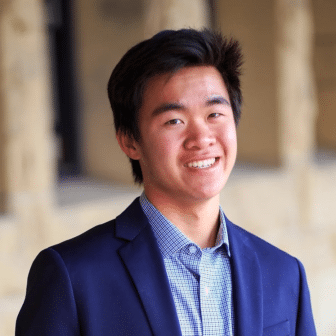 One of Caleb Liu’s most prized possessions is his stack of 10 journals, which he wrote reflections in every night from the seventh grade until the day before he left for college. His project is focused on creating a gamified reflection/journaling experience through an interactive calendar to encourage families to experience joy together. Caleb is a junior at Stanford University studying Computer Science and Music, hoping to one day compose soundtracks for films and visual media.
One of Caleb Liu’s most prized possessions is his stack of 10 journals, which he wrote reflections in every night from the seventh grade until the day before he left for college. His project is focused on creating a gamified reflection/journaling experience through an interactive calendar to encourage families to experience joy together. Caleb is a junior at Stanford University studying Computer Science and Music, hoping to one day compose soundtracks for films and visual media.
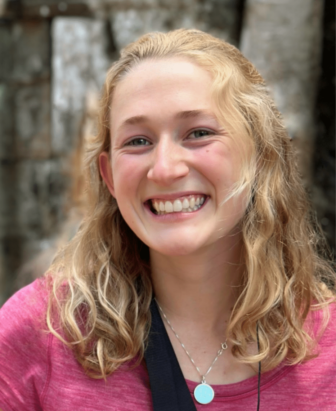 After a late ADHD diagnosis, Celie Hudson began to realize the ways tech platforms targeted tendencies of the disorder and made media management especially difficult for those with ADHD. With NextGen, she plans to create a one-page resource for parents to make social media safer and more manageable for young people, particularly neurodivergent users. Celie is a junior at Tufts University studying Child Development with minors in Film & Media and Cognitive Brain Sciences.
After a late ADHD diagnosis, Celie Hudson began to realize the ways tech platforms targeted tendencies of the disorder and made media management especially difficult for those with ADHD. With NextGen, she plans to create a one-page resource for parents to make social media safer and more manageable for young people, particularly neurodivergent users. Celie is a junior at Tufts University studying Child Development with minors in Film & Media and Cognitive Brain Sciences.
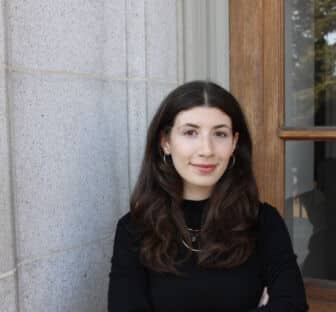 Daniella Ivanir’s advocacy in the peer support and youth mental health space led her to the accountable technology movement as a Program Intern for the leading digital wellness non-profit, #HalftheStory. Her project aims to work directly with youth to create a criteria that identifies elements and design features that are youth-approved when it comes to their digital wellness. This tool and action kit will act as a guide for legislators and advocates to better understand what does “work” and what direction to lobby tech companies to go in to actually meet the needs of young people on the internet. Daniella’s goal is to encourage the aspects of social media that make us want to read more, learn more, talk more to our friends, explore our identity further, and live healthier and more balanced lives. She hails from Los Angeles and is a recent Psychology and Public Policy graduate from the University of California, Berkeley.
Daniella Ivanir’s advocacy in the peer support and youth mental health space led her to the accountable technology movement as a Program Intern for the leading digital wellness non-profit, #HalftheStory. Her project aims to work directly with youth to create a criteria that identifies elements and design features that are youth-approved when it comes to their digital wellness. This tool and action kit will act as a guide for legislators and advocates to better understand what does “work” and what direction to lobby tech companies to go in to actually meet the needs of young people on the internet. Daniella’s goal is to encourage the aspects of social media that make us want to read more, learn more, talk more to our friends, explore our identity further, and live healthier and more balanced lives. She hails from Los Angeles and is a recent Psychology and Public Policy graduate from the University of California, Berkeley.
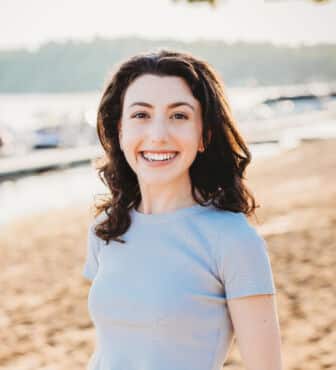 Originally from San Antonio, Texas, Eden Miller graduated from Tufts University with B.A.s in Philosophy and Film & Media Studies with a focus on the relationship between children and the media they consume. In her NextGen project, Eden will research and explore legal interventions that hold Big Tech accountable and make the internet safer for its youngest users. Her goals are to help bolster lawmakers as they work to advance legislation on children’s media-related issues and create another avenue for parents to learn about Big Tech accountability. Eden is a 1L at Harvard Law School who plans to spend her legal career making the digital sphere safer for kids.
Originally from San Antonio, Texas, Eden Miller graduated from Tufts University with B.A.s in Philosophy and Film & Media Studies with a focus on the relationship between children and the media they consume. In her NextGen project, Eden will research and explore legal interventions that hold Big Tech accountable and make the internet safer for its youngest users. Her goals are to help bolster lawmakers as they work to advance legislation on children’s media-related issues and create another avenue for parents to learn about Big Tech accountability. Eden is a 1L at Harvard Law School who plans to spend her legal career making the digital sphere safer for kids.
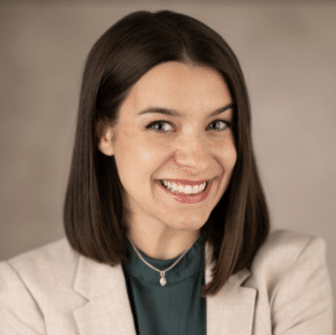 Elizabeth Tate spent ten years heavily engaged with social media platforms before deleting her digital profiles. She did not appreciate the ways in which social media impacted her attention span, sense of self, body image, productivity, personal relationships, and mental health. Elizabeth felt like social media apps were using HER, rather than the other way around. She is using the energy she gained from leaving social media to promote digital autonomy and help other young people make informed choices about their online habits. She plans to create a guide to help teens and young adults craft their own digital philosophy to guide their interactions with social media and similar applications. Elizabeth holds an MS in Psychology and currently works as an information technology consultant.
Elizabeth Tate spent ten years heavily engaged with social media platforms before deleting her digital profiles. She did not appreciate the ways in which social media impacted her attention span, sense of self, body image, productivity, personal relationships, and mental health. Elizabeth felt like social media apps were using HER, rather than the other way around. She is using the energy she gained from leaving social media to promote digital autonomy and help other young people make informed choices about their online habits. She plans to create a guide to help teens and young adults craft their own digital philosophy to guide their interactions with social media and similar applications. Elizabeth holds an MS in Psychology and currently works as an information technology consultant.
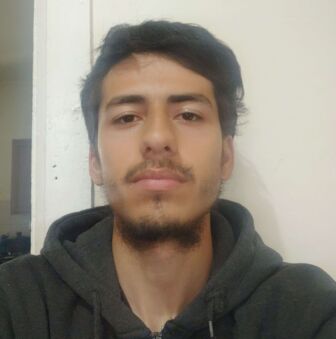 Jonathan Ruiz attends Harold Washington, a community college located in downtown Chicago. Currently he is studying business and is part of the Chicago Youth Services Corps in the Boys and Girls Club. His project will focus on social media addiction in teens and will help youth like himself limit social media usage. He plans to create short videos to raise awareness on why a person feels addicted and what they can do to reduce their time online.
Jonathan Ruiz attends Harold Washington, a community college located in downtown Chicago. Currently he is studying business and is part of the Chicago Youth Services Corps in the Boys and Girls Club. His project will focus on social media addiction in teens and will help youth like himself limit social media usage. He plans to create short videos to raise awareness on why a person feels addicted and what they can do to reduce their time online.
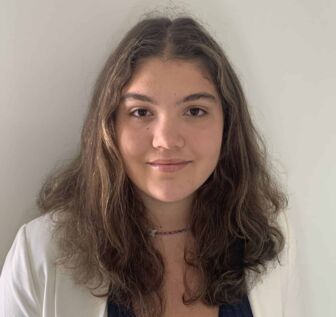 Olivia Konar’s younger sister died of a fentanyl overdose from drugs that she purchased on Snapchat. Her project is focused on the role social media has played in increasing access to drugs for teenagers. Currently, large social media platforms are not being held responsible for the role their platforms are playing in the fentanyl epidemic. Fentanyl is one of the leading causes of death for young people and is widely sold in counterfeit drugs on social media platforms. Olivia’s goal is to raise awareness in parents and teens on the role platforms like Snap play in providing an online open air drug market that allows kids to quickly access drugs. Olivia attends Cornell University in New York and is studying Government.
Olivia Konar’s younger sister died of a fentanyl overdose from drugs that she purchased on Snapchat. Her project is focused on the role social media has played in increasing access to drugs for teenagers. Currently, large social media platforms are not being held responsible for the role their platforms are playing in the fentanyl epidemic. Fentanyl is one of the leading causes of death for young people and is widely sold in counterfeit drugs on social media platforms. Olivia’s goal is to raise awareness in parents and teens on the role platforms like Snap play in providing an online open air drug market that allows kids to quickly access drugs. Olivia attends Cornell University in New York and is studying Government.
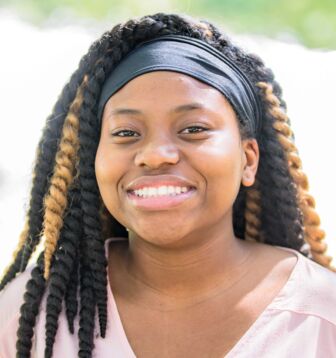 Originally from Philadelphia, Toyin Openibo attended Illinois Institute of Technology where she attained her undergraduate degree in chemical engineering and is now attaining a PhD in Pharmaceutical Engineering. Her NextGen project centers around teaching elementary aged children a technique to reset the nervous system in a world where people are exposed to excessive technology every day and reduce dependence on devices. Toyin’s goal is for students to unlearn negative associations and relearn positive associations to reduce anxiety and increase social bonding and attention span.
Originally from Philadelphia, Toyin Openibo attended Illinois Institute of Technology where she attained her undergraduate degree in chemical engineering and is now attaining a PhD in Pharmaceutical Engineering. Her NextGen project centers around teaching elementary aged children a technique to reset the nervous system in a world where people are exposed to excessive technology every day and reduce dependence on devices. Toyin’s goal is for students to unlearn negative associations and relearn positive associations to reduce anxiety and increase social bonding and attention span.
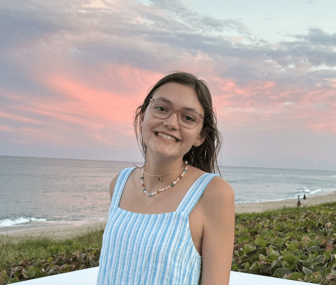 Sadie Goldstein grew up in New York City and is currently studying Child Development at Tufts University, where the impact of screen time on today’s youth is a recurring topic in her classes. Sadie is excited to take what she has learned and apply it to a NextGen project focused on helping children and teenagers reclaim their free time from the grasp of screens. Sadie plans to create a magazine for 10-13 year olds with articles on education (e.g. how screens affect your sleep), suggestions for fun non-screen activities, an advice column and a section with games and puzzles.
Sadie Goldstein grew up in New York City and is currently studying Child Development at Tufts University, where the impact of screen time on today’s youth is a recurring topic in her classes. Sadie is excited to take what she has learned and apply it to a NextGen project focused on helping children and teenagers reclaim their free time from the grasp of screens. Sadie plans to create a magazine for 10-13 year olds with articles on education (e.g. how screens affect your sleep), suggestions for fun non-screen activities, an advice column and a section with games and puzzles.
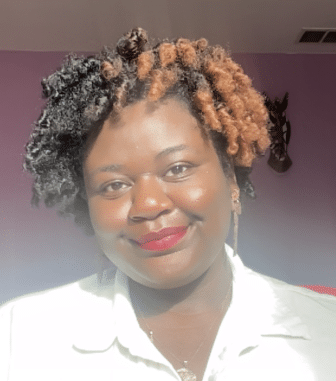 Sierra Koski, a proud Detroit native and alumna of Lansing Community College, is on a mission with her NextGen project. Driven by her own experience of breaking free from the endless social media loop, Sierra is dedicated to inspiring young adults to rediscover their power and reclaim their lives from the grip of social media. Her focus lies in providing innovative ways to reconnect with nature, encouraging a transformative journey towards personal empowerment and a balanced, fulfilling life. Sierra plans to create an audio-only podcast for teens to explore nature and offer mindfulness tips.
Sierra Koski, a proud Detroit native and alumna of Lansing Community College, is on a mission with her NextGen project. Driven by her own experience of breaking free from the endless social media loop, Sierra is dedicated to inspiring young adults to rediscover their power and reclaim their lives from the grip of social media. Her focus lies in providing innovative ways to reconnect with nature, encouraging a transformative journey towards personal empowerment and a balanced, fulfilling life. Sierra plans to create an audio-only podcast for teens to explore nature and offer mindfulness tips.
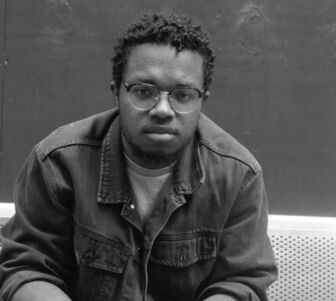 Todd Minor II attends the Fashion Institute of Technology and found his brother had died by suicide from an online “hanging” game. His project is focused on educating middle school students on the dangers of online trends and promoting suicide prevention through education. He plans to write and film PSAs for social media to encourage young students to be safe online.
Todd Minor II attends the Fashion Institute of Technology and found his brother had died by suicide from an online “hanging” game. His project is focused on educating middle school students on the dangers of online trends and promoting suicide prevention through education. He plans to write and film PSAs for social media to encourage young students to be safe online.
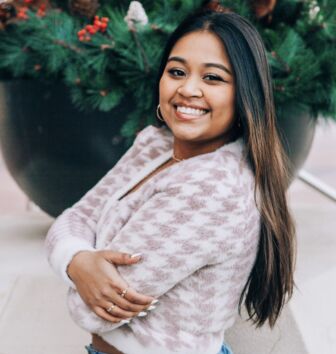 As a middle schooler, Vinaya Sivakumar was plunged into an echo chamber of quantified popularity and toxic trends on social media. Now as a first-year at the University of California, Berkeley, she is striving to make schools in America more digitally balanced and unite youth against digital addiction. Her project is focused on protecting minors’ data through state legislation advocacy. Vinaya plans to draft a statewide youth data privacy bill modeled after recent Utah bills and the UE DSA Act and present it to the Ohio Attorney General and Lieutenant Governor.
As a middle schooler, Vinaya Sivakumar was plunged into an echo chamber of quantified popularity and toxic trends on social media. Now as a first-year at the University of California, Berkeley, she is striving to make schools in America more digitally balanced and unite youth against digital addiction. Her project is focused on protecting minors’ data through state legislation advocacy. Vinaya plans to draft a statewide youth data privacy bill modeled after recent Utah bills and the UE DSA Act and present it to the Ohio Attorney General and Lieutenant Governor.
To learn more about applying for the next cohort of NextGen Connect (as a youth leader or adult partner), please email [email protected].